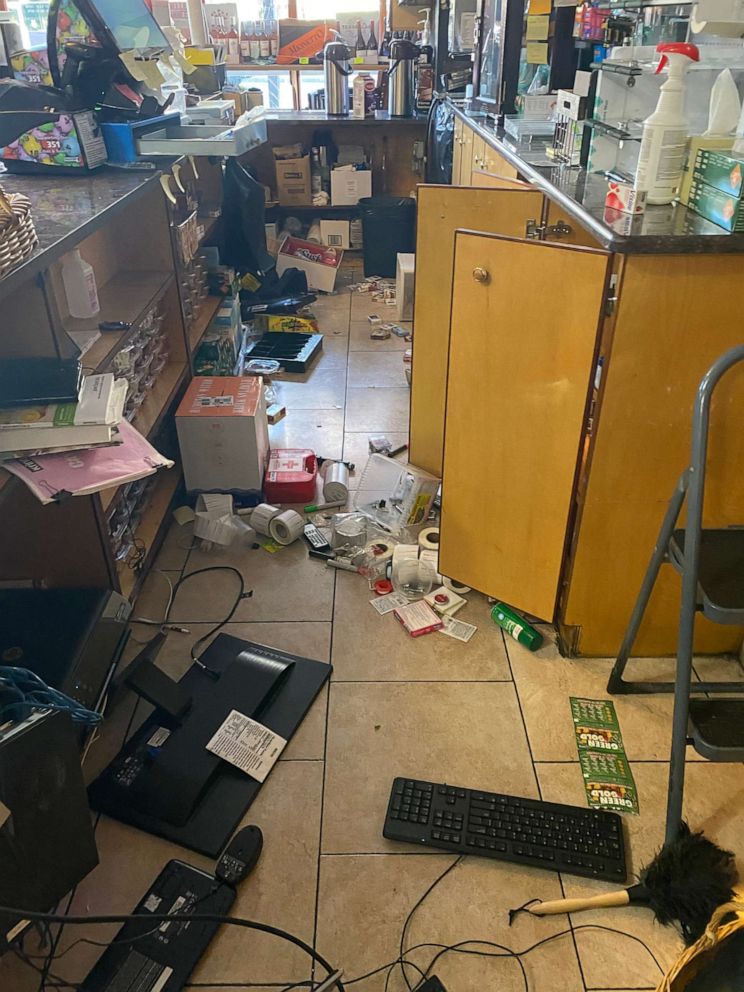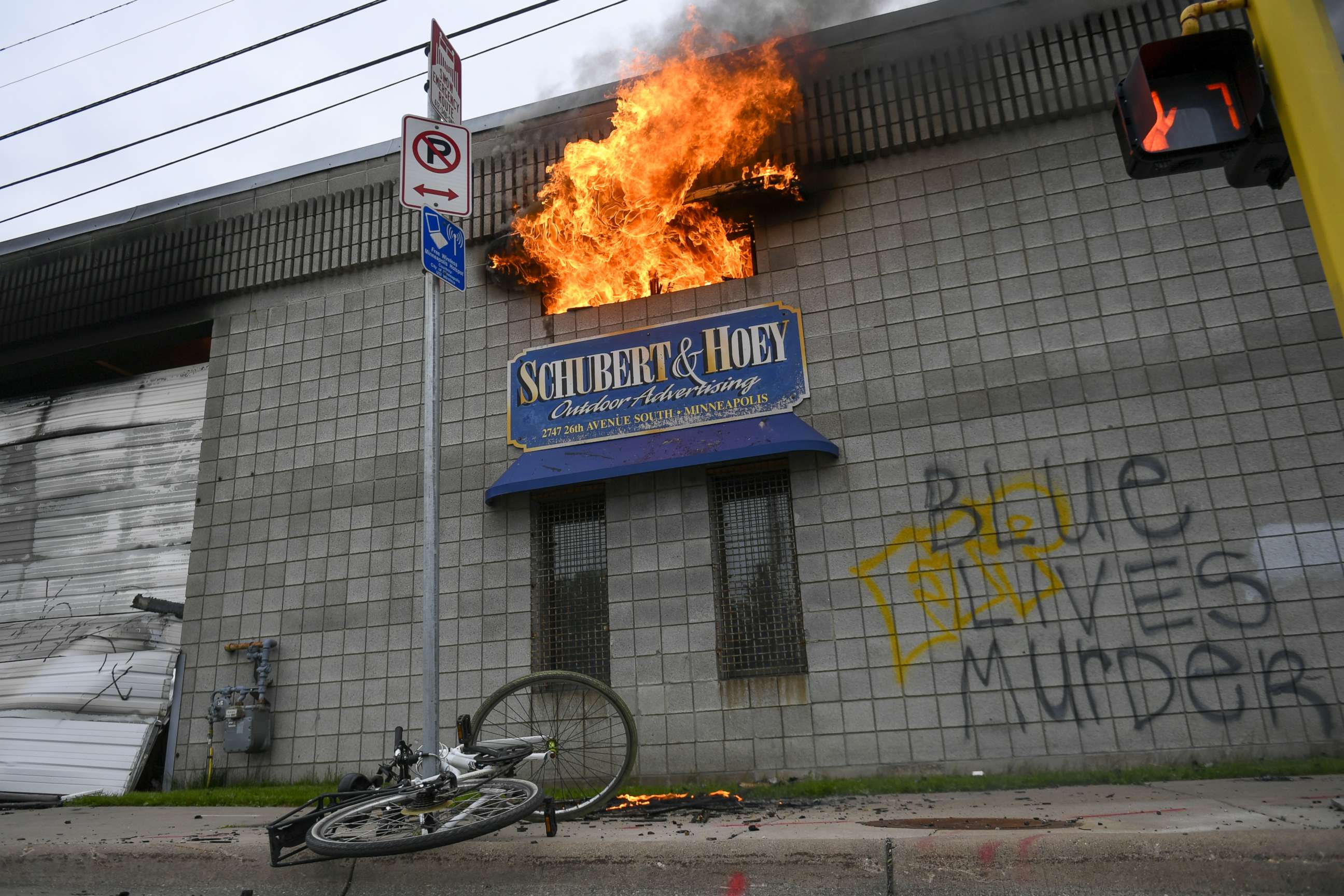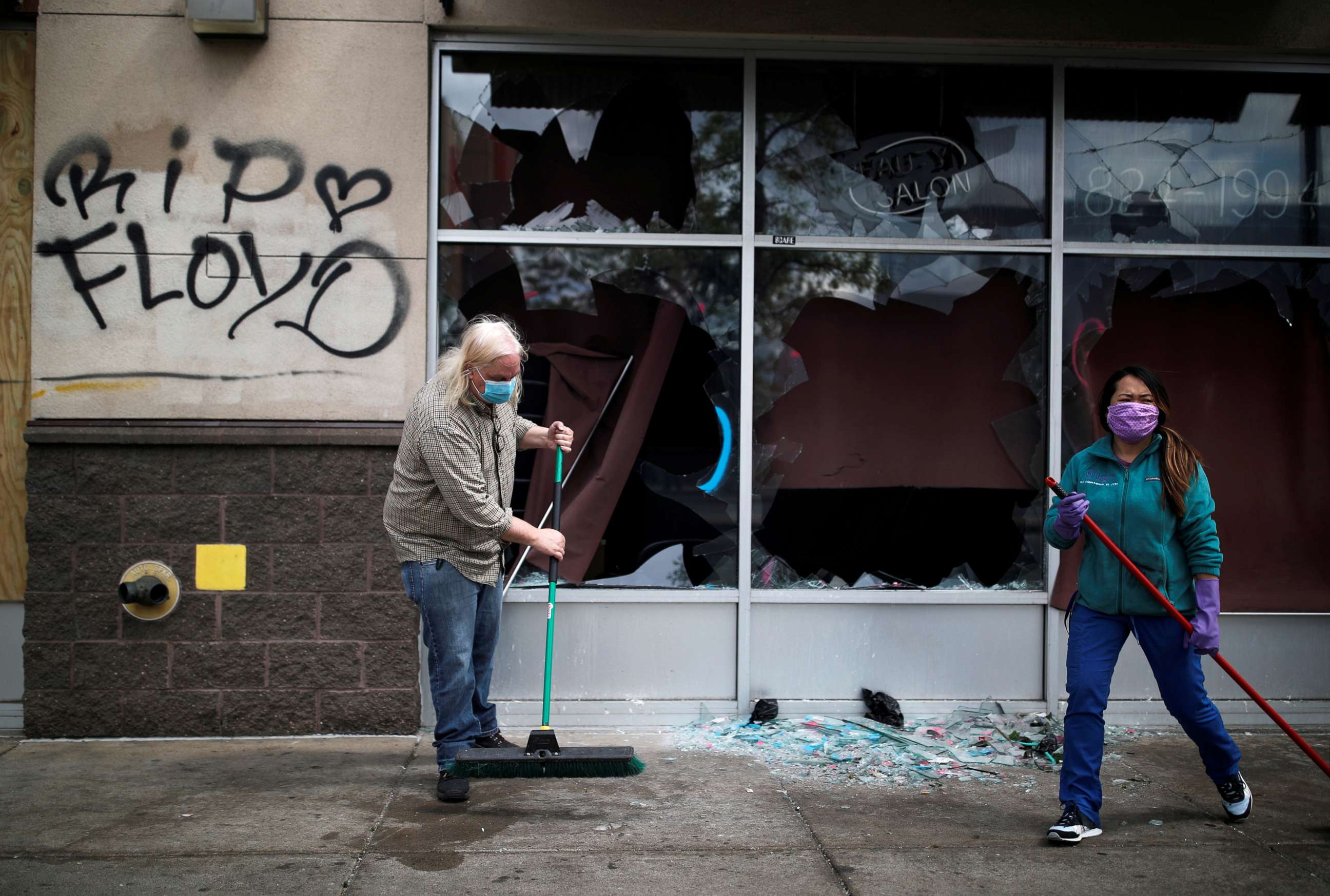Small businesses already hurt by coronavirus face more devastation due to looting
"We are just trying to survive,” a shop owner told ABC News.
In the last week, the economic woes stemming from the coronavirus pandemic were further exacerbated when a number of small businesses throughout the nation sustained damages due to the nationwide protests fueled by the death of George Floyd.
While some of the demonstrations were peaceful, others turned to looting and destruction, leaving many businesses wondering whether they will ever recover and reopen.
Asif Raza, a Pakistani immigrant and the owner of Star Sub in Chicago, was among the small business owners targeted by the looting frenzy.
"This looting has made it even harder for us. There was already very little business, so we are just trying to survive," Raza told ABC News.
Many of the small business owners interviewed by ABC News discussed the incredible hardships they experienced and the sacrifices they made to establish their businesses in the first place.
In general, minority-owned businesses have faced additional challenges, beginning with securing bank loans and capital. A 2016 study by the Stanford Institute for Economic Policy Research determined that startups by people of color report, on average, substantially higher levels of loan denials than their white counterparts.
It is precisely because of such adversities and difficulties that Kareef Johnston, owner and manager of Shoe Mountain in Tampa, Florida, is particularly frustrated. "We started our retail store from humble beginnings selling clothing and shoes in 2004 out of the flea market in Tampa," he told ABC News, adding that this continued until he was able to move to a store front plaza, and ultimately, to a new location in September 2019.

"On Saturday, there was a protest to bring about change to not only our community but the entire world as it relates to police brutality, racial injustice and systemic racism. But as the night fell, those protesters became overshadowed by opportunists. Around 50 individuals rushed our black-owned small business that has been around for about 15 plus years, destroying and taking over a few hundred thousand [dollars] in merchandise."
"We have to understand our black-owned business is exactly what we are protesting for: black ownership and black people creating institutions to provide and employ for our own, access to capital, elimination of redlining, desegregation, equality in all spaces and arenas," Johnston said. "We are not here to tell anyone how to grieve, but we believe the moment we allow selfish desires for material goods trump our purposeful and warranted rage it only contributes to the detriment of black owned business, this cannot be considered anything but a loss."
From all accounts, the economic impact of the coronavirus on small businesses has been substantial, with many generating little or no income because of stay-at-home orders.
Although 74.9% of participants in a recent Census Bureau survey of small businesses said that they had applied for Small Business Administration emergency loans, funds which do not have to be repaid if they are utilized for rent, mortgage or payroll expenses, only 38.1% received aid.
At the same time, many businesses, particularly those owned by minorities and women, have experienced great challenges when applying for loans. Although, under the CARES Act, money was set aside for them, a new report by the SBA's inspector general determined that these businesses "may not have received the loans as intended," because there was "no evidence" that the SBA had issued guidance to lenders about prioritizing minority borrowers.
Hence, many were shut out given the overwhelming demand for the loans and the limits set by banks.
Raphael Kim, owner of Gomi, a Korean wine bar in New York City, is disheartened, and told ABC News, "I really don't know what the future of my business is." During the shutdown, he said, "We have been doing 10% to 20% of what we normally would do. It's just really, really even difficult to survive."
Between 2 a.m. and 3 a.m. on Monday, the entire facade of his store was destroyed, and money was stolen from the cash register.

Also in the early hours of Monday morning, Anna Barounis, a Greek immigrant, and the longtime owner of Giorgiana's, a small neighborhood market and deli in Boston's South End, saw on social media that her store was ransacked.
Throughout the pandemic, she worked alone, because her employees were fearful of getting sick. According to Barounis, approximately 50 teenagers, carrying baseball bats and sledgehammers, looted and damaged the property. She has been told by investigators that they were likely from out of state.
"I've never been so devastated," Barounis told ABC News. "We were never vandalized like this ever in over 49 years, so it was really shocking."
Barounis said that the damage and valuables lost may add up to a "couple hundred thousand dollars," and it will be several weeks until she can reopen her business.
The anguish and pain is also evident in the voice of Jeff Zeitler, who with wife Gita, owns Urban Forage Winery & Cider House, in Minneapolis, Minnesota.
"This is devastating. We were just planning to reopen, then we got looted, and the blocks around us got burned down -- it is just terrible."
The Zeitler family's store was vandalized, with much destroyed inside, and much of the merchandise gone. During the pandemic, he says, the sales were down between 60% and 70%, but despite the setback, he and his wife were feeling optimistic, anticipating a recovery.

Zeitler voiced his grief over the lack of a police presence in his area, feeling that from the onset of the demonstrations, "They have basically abandoned us. They left our area to be looted and burned."
He is now finding support within his neighborhood, as many residents and business owners have committed to guarding the buildings in the area to discourage more looting. Still, Zeitler feels quite vulnerable and unsure about the future. But, he told ABC News, "This is my dream. This is my dream. I desperately want to reopen."
Although the total number of businesses that were damaged during riots around the country remains uncounted, unofficial counts suggest that hundreds may have been impacted.
Most of the small business owners ABC News spoke to said they are not sure if insurance will cover the destruction caused by the looting. For now, many have organized GoFundMe fundraisers to help pay for some of the damages.